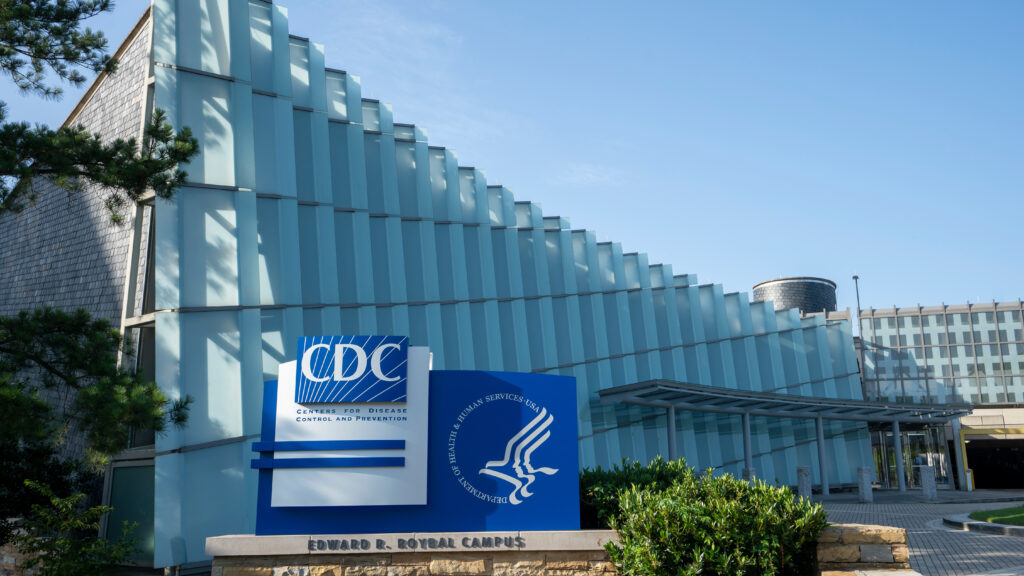Get your daily dose of health and medicine every weekday with STAT’s free newsletter Morning Rounds. Sign up here.
Good morning. I went on a hike this weekend and saw autumn orange leaves at the top of the mountain. Here it comes.
Trump says CDC is ‘being ripped apart’
President Trump urged pharmaceutical companies to publicly prove that their Covid-19 products work, saying yesterday in a Truth Social post that the CDC is “being ripped apart over this question.” The post, which came five days after the ouster of Susan Monarez as CDC director and resignation of several other top officials, appeared to be Trump’s first public acknowledgement of recent tumult at the agency.
Beyond the fact that drug companies have long shared their findings publicly — evidence has repeatedly shown Covid vaccines to be clearly safe and effective for most people — the post appeared to be ambiguous.
Trump neither fully embraced Robert F. Kennedy Jr.’s view that Covid vaccines were harmful, nor dismissed it out of hand either. Read more from STAT’s Daniel Payne and Matthew Herper on how to interpret the Rorschach test of a social media post. Meanwhile, nine previous CDC directors wrote in the The New York Times that Kennedy’s upending of federal health agencies is putting American lives in danger.
Happy September. Lawmakers are back to business
Congress returns from its summer recess today. Legislators have 28 days before they hit the deadline for funding the government. Negotiations on health care issues, in particular, could be messy, STAT’s John Wilkerson writes, but there are glimmers of hope for bipartisan agreement.
The expiring enhanced subsidies that have made Affordable Care Act marketplace plans cheaper will likely factor prominently into the government-funding debate, thanks to their cost and political importance, which will in turn affect multiple other health care policies. Those include hospital site-neutral payments, Medicare Advantage coding intensity adjustments, drug middlemen reforms, and more. Read more from John on what’s ahead.
There still aren’t enough women in cardio trials
Women still aren’t accurately represented in some cardiovascular disease clinical trials, especially on high-risk conditions, according to a study published Sunday in JAMA Network Open. Researchers found improved levels of participation by women in studies focused on obesity, pulmonary, and hypertension. But female-to-male ratios were significantly low in trials on arrhythmia, coronary heart disease, acute coronary syndrome, and heart failure. The ratios were more even on studies looking at prevention strategies like lifestyle interventions than they were for drug studies.
Researchers analyzed data from more than 1,000 clinical trials between 2017 and 2023. Out of nearly 1.4 million participants, 41% were women. The review “highlights both progress and persistent gaps in the representation of women in CV trials,” the authors write, emphasizing the need for more targeted strategies to improve inclusive trial design, including policies mandating diversity. Continued underrepresentation limits how generalizable the research is, they added.
Is AI psychosis real?
Half a billion people globally use OpenAI’s tools, including ChatGPT. Some mental health professionals have heralded chatbots like these for their potential as alternative therapy options for people who have trouble accessing real world services. But recent claims of AI chatbots “triggering” mental illness and psychotic episodes are resurfacing old questions about the ethics of these technologies, as well as the safeguards meant to mitigate their harms.
STAT’s Rose Broderick talked with a half-dozen medical professionals to understand what they are seeing in their clinics. Most said they’ve heard from a small number of patients who experienced delusions after extended conversation with a chatbot. Read more from Rose about the major concerns that clinicians have, and what existing research can tell us.
1 in 5
That’s how many medical students experience food insecurity in the U.S. — almost double the national household average — according to a survey of more than 1,800 trainees from across eight medical schools, published Friday in JAMA Network Open. Food insecurity in early adulthood can raise the risk of heart disease, another study showed earlier this year.
The new results come in the wake of persistent calls from health secretary Robert F. Kennedy Jr. to expand nutrition education in medical schools. A couple years ago, a First Opinion essay argued that people who face food insecurity need better nutrition education — but they were talking about SNAP-Ed, a program referred to as a “pillar of public health” that will end this year due to budget cuts.
Put statins in the water — or at least make them over the counter
Vishal Khetpal, a cardiovascular disease fellow, was at the clinic when he came to the realization that statins should be available over the counter. In one day, he saw three people who should have been taking statins, for clear reasons in their medical records, but each one had a different reason for not doing so.
In the first essay for his new STAT column, The Workup, Khetpal argues that it’s time to make a change in how we get statins to patients who need them. Read more on why the drug wasn’t designated OTC to begin with, and how that might change. And keep an eye out for more columns, in which Khetpal will explore issues at the intersection of cardiology and society.
What we’re reading
As drug deaths hit a 5-year low, Trump continues to cite fentanyl as major threat, NPR
Do state referendums on abortion work? New Yorker
First Opinion: U.S. science and universities are becoming political hostages in the Orbánization of knowledge, STAT
Margaret W. Rossiter, 81, dies; Wrote women scientists into history, New York Times
Alnylam’s hypertension treatment did not significantly lower blood pressure in mid-stage study, STAT

